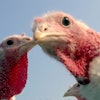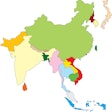The National Pork Producers Council and the National Cattlemen’s Beef Association have both spoken out against the agreement between the United Egg Producers and the Humane Society of the United States to work together toward the enactment of federally mandated egg production standards, citing concerns about setting precedents for government interference in the industry.
“Cattlemen are rightfully concerned with the recent UEP-HSUS agreement to seek unprecedented federal legislation to mandate on-farm production standards," said Colin Woodall, vice president of government affairs with the NCBA. "More than two decades ago, cattlemen adopted voluntary production practice guidelines. The cattle industry’s successful programs were not the result of a government mandate. They were developed by industry for industry to ensure cattlemen constantly improve handling and management techniques."
According to Woodall, the industry will continue working to ensure its standards are based on the latest knowledge. "Unlike the UEP-HSUS agreement, our cattle care programs should never be weakened by being misused or construed as the basis of a regulatory or government mandated program," he said.
According to the NPPC, legislation pre-empting state laws on egg production systems would set a dangerous precedent for allowing the federal government to dictate how livestock and poultry producers raise and care for their animals, and would inject the federal government into the marketplace with no measurable benefit to public or animal health and welfare.
“The NPPC is gravely concerned that such a one-size-fits-all approach will take away producers’ freedom to operate in a way that’s best for their animals, make it difficult to respond to consumer demands, raise retail meat prices and take away consumer choice, devastate niche producers and, at a time of constrained budgets for agriculture, redirect valuable resources from enhancing food safety and maintaining the competitiveness of U.S. agriculture to regulating on-farm production practices for reasons other than public health and welfare,” said the organization.


















